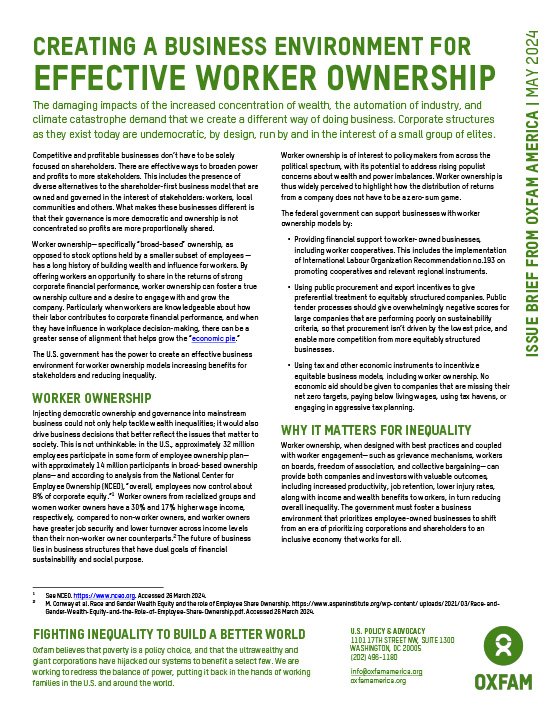
The negative effects of wealth concentration, industrial automation, and climate disaster require us to change the way we do business. Our current corporate structure is deliberately undemocratic, run by and for the benefit of a small elite group.
Competitive, profitable businesses do not need to be solely focused on shareholders. There are effective ways to spread power and benefits to more stakeholders. This includes the existence of diverse alternatives to shareholder-first business models that are owned and managed for the benefit of workers, communities and other stakeholders. What sets these businesses apart is that governance is more democratic and ownership is less concentrated, so profits are distributed more proportionally.
Worker ownership, especially “broad” ownership as opposed to stock options held by a small number of employees, has a long history of building worker wealth and influence. By offering workers the opportunity to share in the benefits of a company’s positive performance, worker ownership can foster a true culture of ownership and a desire to be involved in and grow the company. In particular, when workers know how their labor contributes to the company’s performance and have influence over workplace decisions, it creates a greater sense of solidarity and helps grow the “economic pie.”
The U.S. government has the power to create an enabling business environment for worker-owned models that increase stakeholder benefits and reduce inequality.

